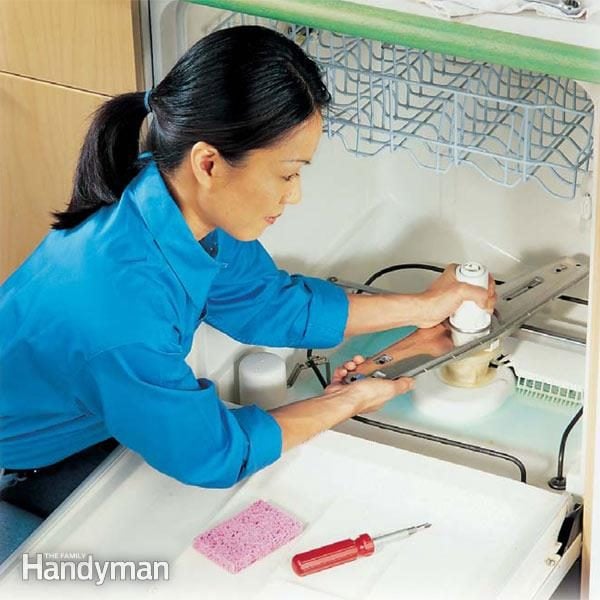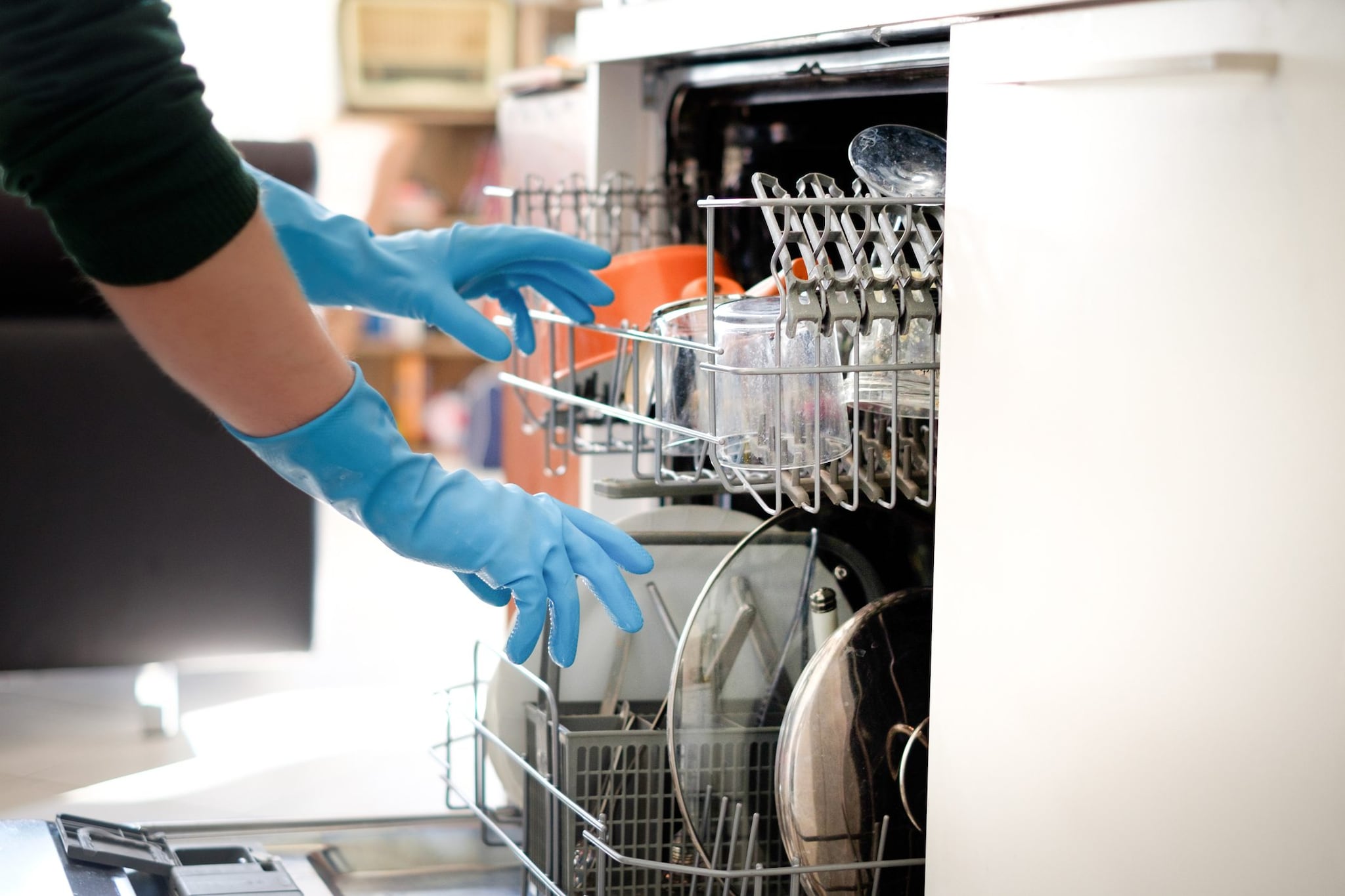Detecting Issues with My Dishwasher: Insights for Homeowners
Get A QuoteThe article following next relating to How to Troubleshoot & Repair a Dishwasher is incredibly enjoyable. Give it a go and make your own personal ideas.

Having your dish washer failure or malfunction can be a big deal and also trigger some pain in the house. Dishwashers are devices that we use to clean meals and also cutleries automatically to conserve us the stress of by hand doing it.
Like every other machine that reduces human effort, dish washers can break down as well as create some mistake at some time in time. There are numerous faults your dish washer could establish, and also while a few of them can be addressed by changing some components or fixing them, various other more serious problems will need that you obtain a new dishwasher.
This post will identify a few typical faults your dishwashing machine might establish to hinder its overall performance as well as how these mistakes can be addressed.
Typical Faults
Usual dish washer faults could vary from minor to major ones. Depending on the degree, you will certainly either need the solutions of specialist plumbing professionals to repair or replace it.
Some of the most common mistakes include:
Dripping Dishwashing machine
This is probably the most day-to-day dish washer trouble, and the bright side is that it is easy to determine. Leakages occur because of numerous factors, and the leaks can bungle your cooking area. Usual root causes of dish washer leakages consist of;
Bad-Smelling Dishwasher
This is one more common dish washer issue, as well as it is mostly caused by food particles or oil lingering in the maker. In this case, try to find these bits, take them out and also do the dishes with no dishes inside the device. Clean the filter extensively. That will certainly aid do away with the bad odor. Guarantee that you remove every food particle from your dishes prior to moving it to the device in the future.
Lack of ability to Drain
Occasionally you might discover a large amount of water left in your bathtub after a clean. That is most likely a drainage problem. You can either inspect the drainpipe pipe for problems or obstructions. When unsure, call a specialist to have it inspected as well as fixed.
Does unclean correctly
If your meals and cutleries come out of the dish washer and also still look filthy or unclean, your spray arms might be an issue. In a lot of cases, the spray arms can get obstructed, and it will certainly call for a fast clean or a replacement to function efficiently once again.
Final thought
A few of these typical dish washer faults can be dealt with conveniently at home, but in many cases, the faults could be massive and also might call for the interest of specialists. If you live in Rochester, Syracuse, and various other parts of America, allowed the professionals effectively diagnose what could be incorrect with your dishwasher and proffer an option.
We likewise mount dishwashing machines if you simply acquired a brand-new one or mean to replace your own. With our many years of experience in the sector, we make certain to provide you the best feasible solutions.
8 Most Common Dishwasher Problems & How to Fix Them
My Dishwasher Isn't Draining
If your dishwasher isn't draining properly, you may be having an issue with your dishwasher's drainage system. This can be caused by a variety of issues:
Clogged drain: The dishwasher's drain may be clogged with food particles or other debris. Malfunctioning pump: The dishwasher's pump is responsible for moving water through the system and out of the drain. If it's damaged or not working correctly, it could cause a drainage failure. Broken or clogged hose: The dishwasher's drain hose may be broken or clogged, causing water to back up in the system. How to Fix Dishwasher Not Draining
Check the drain for any blockages. A clogged or kinked hose will prevent water from properly draining out of the dishwasher. Use a plunger or a pipe snake to clear any debris that may be blocking the drain. Check the dishwasher's pump for damage or malfunction. Consult the manufacturer's manual or call a professional appliance repair service if you think the pump may be the issue. Check the drain hose for any damage or blockages. The hose should be straight and free of any debris or kinks. Check the drain pump filters for any blockages if the hose is clear, but the dishwasher is still not draining. Some dishwashers have filters that can become clogged with food particles or debris. Cleaning or replacing the filters may help resolve the issue. Run a dishwasher cycle to make sure the water is properly draining out. My Dishwasher Is Leaking
A leaking dishwasher can be frustrating. There are a few possible causes that you can investigate to try and diagnose the issue:
Inspect the dishwasher for any visible signs of damage or wear and tear. Look for cracks or holes in the door and around the rubber seal. Check the hoses and pipes connected to the dishwasher for any signs of leaking. If there is no visible damage, you may hear the sound of water dripping or the sound of the water pump running. This might mean a problem with the water inlet valve or the drain pump. You may also notice a puddle of water on the floor near the dishwasher. This could indicate a blocked drain hose or a faulty drain pump. Finally, check the seals around the door and the door for any signs of damage, wear and tear, or improper installation. If any of these issues are present, they must be fixed immediately to avoid further water damage. How to Fix a Leaky Dishwasher
Identify where the leak is coming from. The most common places for a dishwasher to leak include the door, hoses, and pump. If the leak is coming from the door, the gasket or seal may need to be replaced. If the leak is from the hose or pump, the damaged parts should be replaced with new ones. Finally, check all the connections and make sure they are secure and not leaking How to Fix a Dishwasher That Won't Start
The perfect remedy for a dishwasher that won't start is confirming all the components are in perfect working order and that the wiring is in good condition. Next, inspect the motor and replace it if necessary.
If these steps do not resolve the problem, contact a professional appliance repair technician to diagnose and fix the issue.
Conclusion
Most dishwashers are reliable appliances with a long lifespan. As with all devices, checking your dishwasher regularly will help you quickly identify any issues and ensure that it is running efficiently.
And if you're in the market for a new dishwasher, don't let dishwasher problems ruin your day. Upgrade to a reliable, efficient model today! Check out our full selection of top-quality dishwashers that includes a range of styles and features to suit any budget and household needs.
https://www.coastappliances.ca/blogs/learn/common-dishwasher-problems

I am very eager about The Most Common Dishwasher Problems and I am assuming you appreciated our piece. Sharing is caring. Helping people is fun. We thank you for reading our article about How to Troubleshoot & Repair a Dishwasher.
Avoid further plumbing damage; call.